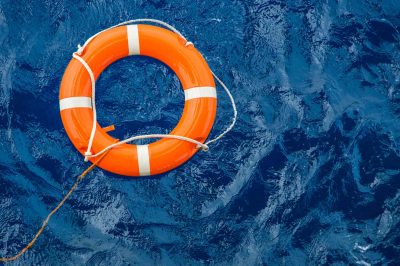As a universal religion born initially in the harsh deserts of Arabia to complete the message of former prophets and convey the divine revelation in its last testament (Qur’an), Islam ascribes the most sacred qualities to water as a life-giving, sustaining and purifying resource.
It is the origin of all life on earth, the substance from which Allah created man (Al-Furqan 25:54), and the Holy Qur’an emphasizes its centrality: {We made from water every living thing} (Al-Anbiyaa’ 21:30).
Water is the primary element that existed even before the heavens and the earth did:
{And it is He who created the heavens and the earth in six days, and his Throne was upon the waters} (Hud 11:7).
The water of rain, rivers and fountains runs through the pages of the Qur’an to symbolize Allah’s benevolence:
{He sends down saving rain for them when they have lost all hope and spreads abroad His mercy} (Ash-Shura 42:28).
At the same time, the believers are constantly reminded that it is Allah Who gives sweet water to the people, and that He can just as easily withhold it:
{Consider the water which you drink. Was it you that brought it down from the rain cloud or We? If We had pleased, We could make it bitter} (56:68-70)
In this verse the believers are warned that they are only the guardians of Allah’s creation on earth; they must not take His law into their own hands.
Facing Allah in Radiant Purity: Ablutions
“Cleanliness is half of faith,” the Prophet (peace and blessings be upon him) tells his companions in one of the Hadiths. (Muslim)
These well-known and oft-repeated words reveal not only the central importance of purity and cleanliness, but also the essential role water plays in Islamic religion. Purification through ablution is an obligatory component of the Islamic prayer ritual; prayers carried out in an impure state are not valid. In addition, a more thorough ritual is required on specific occasions.
The Qur’an tells believers that Allah {loves those who cleanse themselves} (At-Tawbah 9:108) and instructs them:
{O you who believe, when you rise to pray, wash your faces and your hands as far as the elbow, wipe your heads, and [wash] your feet to the ankle. If you are in a state of ceremonial impurity, cleanse yourselves… Allah does not wish to burden you, but desires to purify you} (Al-Ma’idah 5:6)
Allah will reward those who purify themselves, as proved by the hadith reported by Muslim:
“My Ummah will come on the Resurrection Day with brightness on their foreheads, hands and feet from the effect of ablution.”
Entire chapters of the Hadiths are dedicated to ablutions, detailing when and how they should be performed, and explaining in which order the various parts of the body should be washed, how the feet are to be cleaned, how the head should be rubbed – even how often the nostrils should be cleared.
They also specify that the water used for ablutions should be pure (mutlaq) which means it should not be mixed with any other liquid. Water from rain, wells, flowing water from taps, rivers and streams, and still water from lakes, ponds, seas and oceans, are all considered to be pure and suitable for ritual ablution.
Pages: 1 2 3 4 5

